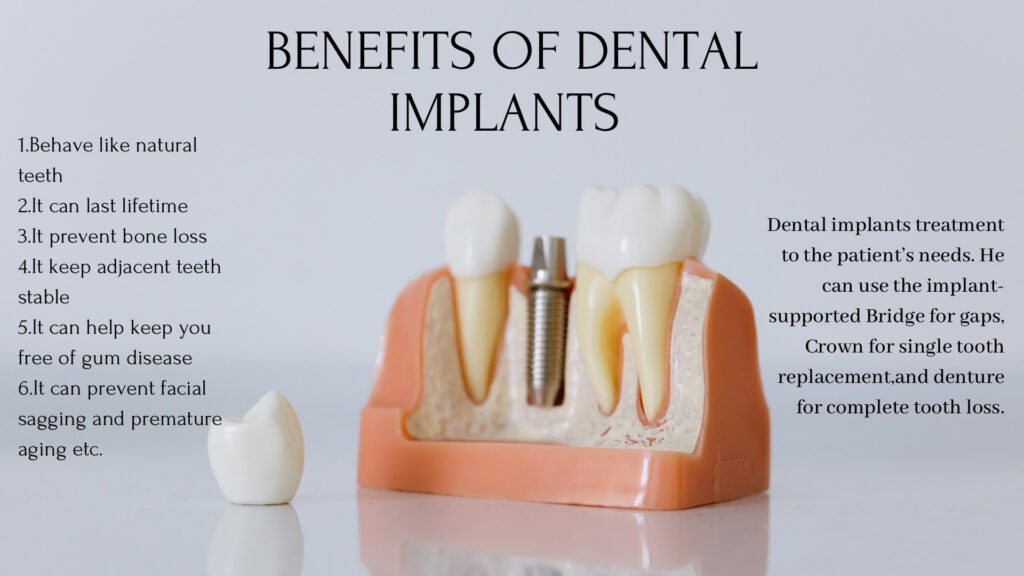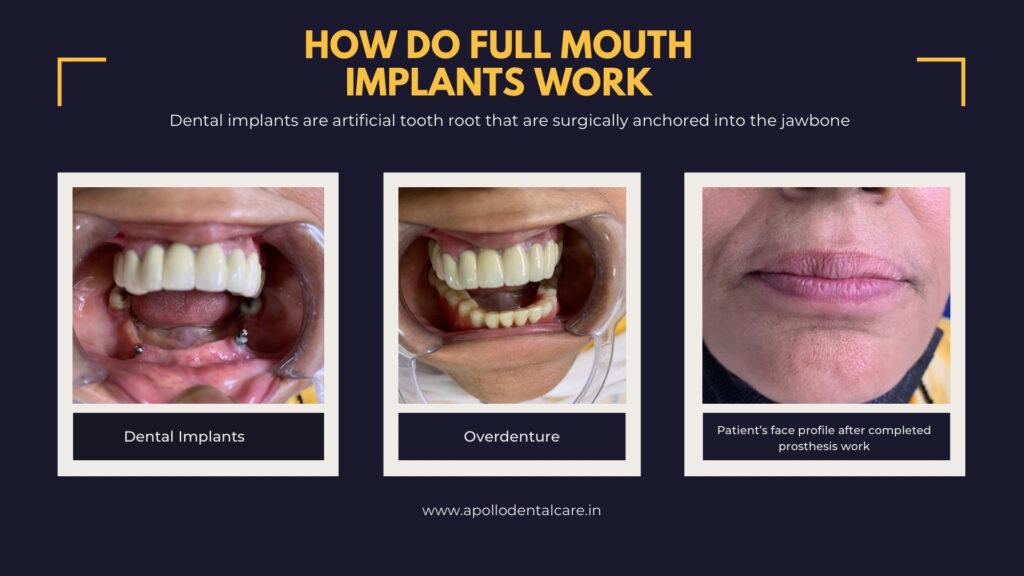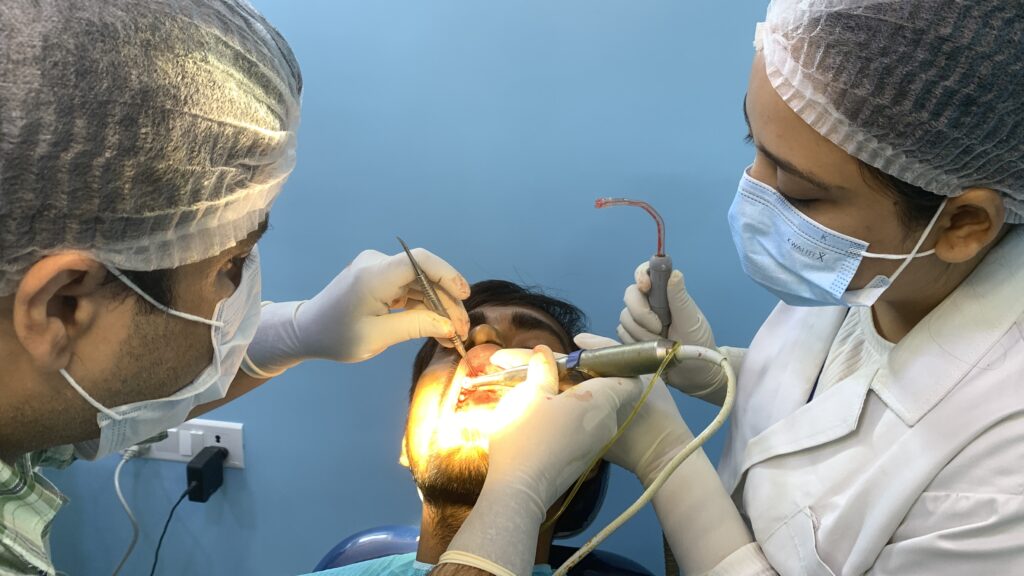Why do people avoid Dentures and why go for Dental implants..??
Table of Contents

INTRODUCTION:
The goal of modern dentistry: is to restore normal contour, function, comfort, esthetics, speech, and health of a patient. Since a partial and removable prosthesis may not bring satisfactory results. Dental implants are designed to provide a foundation for the replacement of teeth. That look, structure, feel, and function like natural teeth. And there are so many Implants available in Apollo Dental Care in Patna but Most dental implants are made of titanium, which the best dental clinic in Patna allows them. They integrate with bone without being recognized as an object in our body.
BENEFITS OF DENTAL IMPLANTS
One of the biggest benefits of dental implants is that they are made to look like your natural teeth which are done by the Best dental clinic in Patna. The crown, or artificial tooth, is sculpted so that it resembles a natural tooth. It can be difficult to identify or tell implants from natural teeth, even up close. Another benefit is that they function just like real or natural teeth. The implant acts like the root of a natural tooth and the replacement is anchored into the jaw bone. The artificial.
The tooth that is placed on top of the implant (crown), or implant, is entirely functional. Implants offer the same chewing force, unlike removable bridges or dentures in the best dental clinic in Patna. You do not have to remove dental implants as they stay once in your mouth. Another benefit is that dental implants are permanent but cost-effective when compared with other treatments such as dentures, which must be replaced every few years but dental implants do not.

How Do Full Mouth Dental Implants Work?
An experienced best dental clinic in Patna will strategically and surgically attach each implant to the patient’s jawbone. A dental implant is a surgical process that is placed into the jawbone and allowed to fuse with the bone over the span of 3-4 months. The best dental clinic in Patna offers a life of smiles through Dental implants. The dental implant acts as a replacement for the root of a missing tooth and makes it a base. This artificial tooth root serves to hold a replacement of the tooth, over a denture or bridge.
Having a dental implant fused to the jawbone is the closest thing to like a natural tooth because it stands on its own without affecting the nearby teeth and has great stability and process of fusion between the dental implant and jawbone. There are so many types of dental implants but Most are made of titanium, which allows. They integrate with bone without being recognized as a foreign object in our body. Today, the success rate for dental implants is close to 99%.

FAQ
What is the main role of Dental Implants?
The main role of Dental Implants is replacement tooth roots. Implants provide a strong foundation for fixing and permanent or removable replacement teeth that are made to match your natural teeth.
Dental Implant is a successful treatment?
yes. Dental Implants are a successful treatment and Today the success rate of dental implants is up to 98%, Implants can last a lifetime.
Is Dental Implants a painful procedure?
The procedure itself is not painful since it is performed with local anesthesia or general anesthesia. You should expect temporary pain after the dental implants. The dental implant is a surgical process that allows it to fuse with the bone. The temporary pain span is not more than 24hrs or 48hrs.
Why do Patients Need Dental Implants?
Dental Implants treatment to patient’s needs because he can use dental implants-supported Crowns for single-tooth replacement, Bridges for gaps caused by a few missing teeth, and Dentures to treat complete tooth loss.
Conclusion:
The early and primary detection, prevention, and treatment of peri-implant diseases are imperative for dental implant success. Peri-implant maintenance includes the proper and safe dental implant placement, patient preventive self-care, and professional care by the best dental clinic in Patna. The post-treatment goal is successful healing of the soft tissues and bone layers by creating a fibrous layer interposed between the bone and implant.
